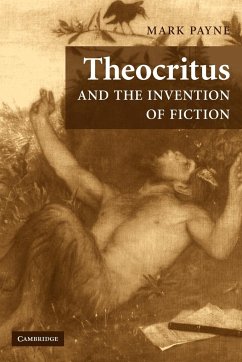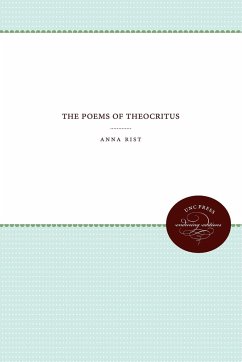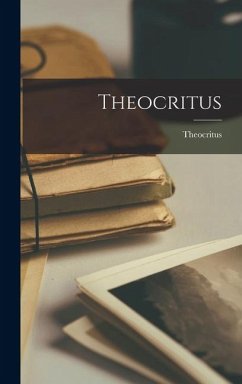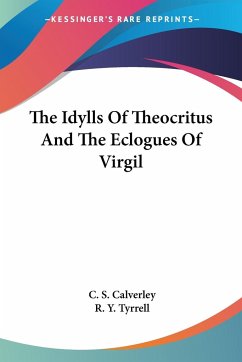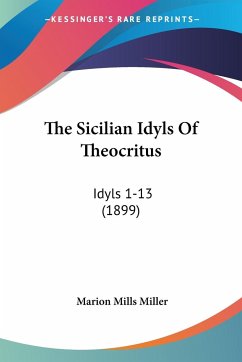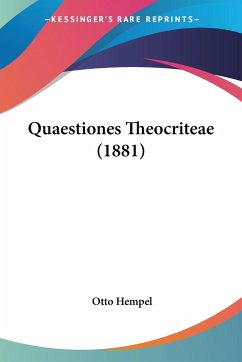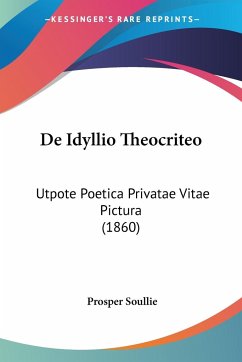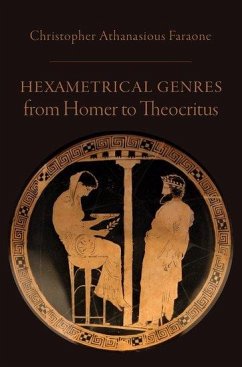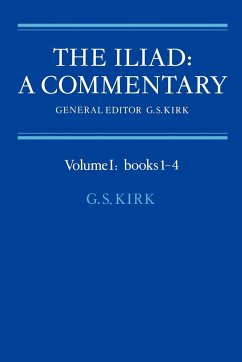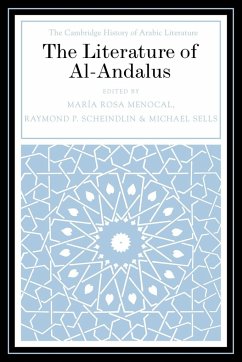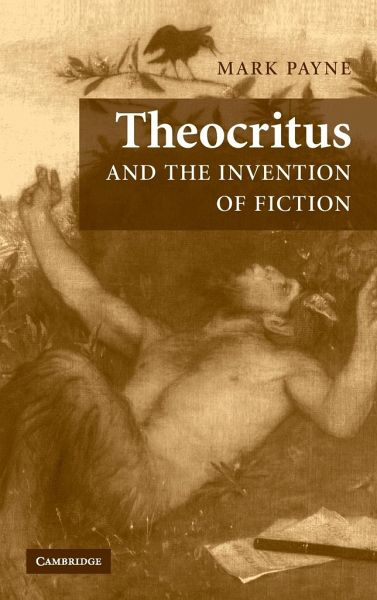
Theocritus and the Invention of Fiction
Versandkostenfrei!
Versandfertig in 1-2 Wochen
104,99 €
inkl. MwSt.
Weitere Ausgaben:

PAYBACK Punkte
52 °P sammeln!
The bucolic Idylls of Theocritus are the first literature to invent a fully fictional world that is not an image of reality but an alternative to it. It is thereby distinguished from the other Idylls and from Hellenistic poetry as a whole. This book examines these poems in the light of ancient and modern conceptions of fictionality. It explores how access to this fictional world is mediated by form and how this world appears as an object of desire for the characters within it. The argument culminates in a fresh reading of Idyll 7, where Professor Payne discusses the encounter between author an...
The bucolic Idylls of Theocritus are the first literature to invent a fully fictional world that is not an image of reality but an alternative to it. It is thereby distinguished from the other Idylls and from Hellenistic poetry as a whole. This book examines these poems in the light of ancient and modern conceptions of fictionality. It explores how access to this fictional world is mediated by form and how this world appears as an object of desire for the characters within it. The argument culminates in a fresh reading of Idyll 7, where Professor Payne discusses the encounter between author and fictional creation in the poem and its importance for the later pastoral tradition. Close readings of Theocritus, Callimachus, Hermesianax and the Lament for Bion are supplemented with parallels from modern contemporary fiction and an extended discussion of the heteronymic poetry of Fernando Pessoa.





